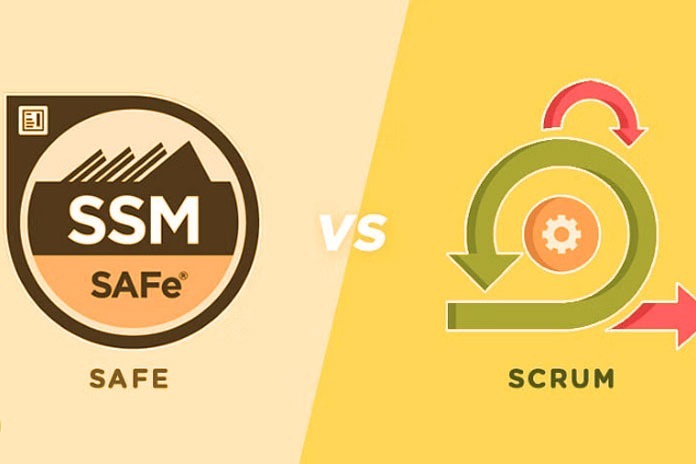Agile approaches have transformed the software development business, allowing organizations to become more adaptable, adaptive, and responsive to changing market demands. SAFe (Scaled Agile Framework) and Scrum are two notable frameworks that have acquired substantial acceptance in recent years. While both approaches embrace agile principles, there are several significant variations between SAFe certification and Scrum certification. In this blog post, we will go over these distinctions in depth to help you determine which certification is best for your career aspirations.
SAFe Agile Certification:
- Scalability: The SAFe Agile certification’s emphasis on scalability is one of its key differentiators. SAFe seeks to integrate agile ideas into complex projects spanning numerous teams, divisions, and even entire organizations. It offers a structure that makes it easier for people to work together, coordinate their efforts, and synchronize their efforts at different levels while assuring alignment with strategic business goals.
- Roles and Responsibilities: When compared to Scrum, SAFe adds more roles and responsibilities. To oversee the synchronization and integration of many teams, it comprises professions like Release Train Engineer (RTE), Solution Train Engineer (STE), and Agile Release Train (ART). The knowledge and abilities needed to successfully perform these responsibilities are provided by SAFe Agile certification for professionals.
- Framework Organisation: Scrum, Kanban, Lean, and DevOps are a few of the frameworks that SAFe incorporates into its structure. It offers a thorough method that addresses numerous facets of project management, organizational change, and software development. Practitioners who have earned the SAFe Agile certification have a comprehensive understanding of these frameworks, enabling them to spearhead agile changes at the corporate level.
Scrum Certification:
- Flexibility and Simplicity: Scrum is a minimal framework that emphasizes flexibility and simplicity. Small to medium-sized teams working on projects with frequently changing needs are the target audience for this strategy. Iterative development, frequent feedback loops, and continual improvement are all stressed in the scrum. The ability to become competent Scrum Masters, Product Owners, or team members is enabled by Scrum certification, ensuring the successful delivery of incremental value.
- Roles and rituals: The three key responsibilities in Scrum are Scrum Master, Product Owner, and Development Team. Because each role has defined accountability within the team, each has particular duties to fulfill. Regular checkpoints are provided through Scrum ceremonies including Daily Stand-ups, Sprint Planning, Sprint Review, and Retrospectives to assess and adjust the project’s progress. Professionals that hold Scrum certifications have the knowledge and abilities to excel in these positions and successfully implement the Scrum methodology.
- Focus on Team Cooperation: Scrum prioritizes self-organization and team cooperation. It promotes strong collaboration amongst cross-functional teams, cultivating a culture of shared ownership and collaborative responsibility. The knowledge and resources provided by a Scrum certification enable people to improve collaboration, communication, and decision-making within Scrum teams.
Conclusion
Depending on the size and type of the projects you work on, having a deep understanding of both SAFe Vs Scrum certification each provides significant advantages in terms of team and technical agility in SAFe. While Scrum certification emphasizes simplicity, flexibility, and collaboration within smaller teams, SAFe Agile certification prepares professionals to traverse large-scale projects and achieve organizational transformations. Knowing the distinctions will help you select the certification that best suits your professional objectives and will help you succeed in the agile software development sector.
Also Read: Scrum Methodology – How It Benefits The Company & Individuals?


